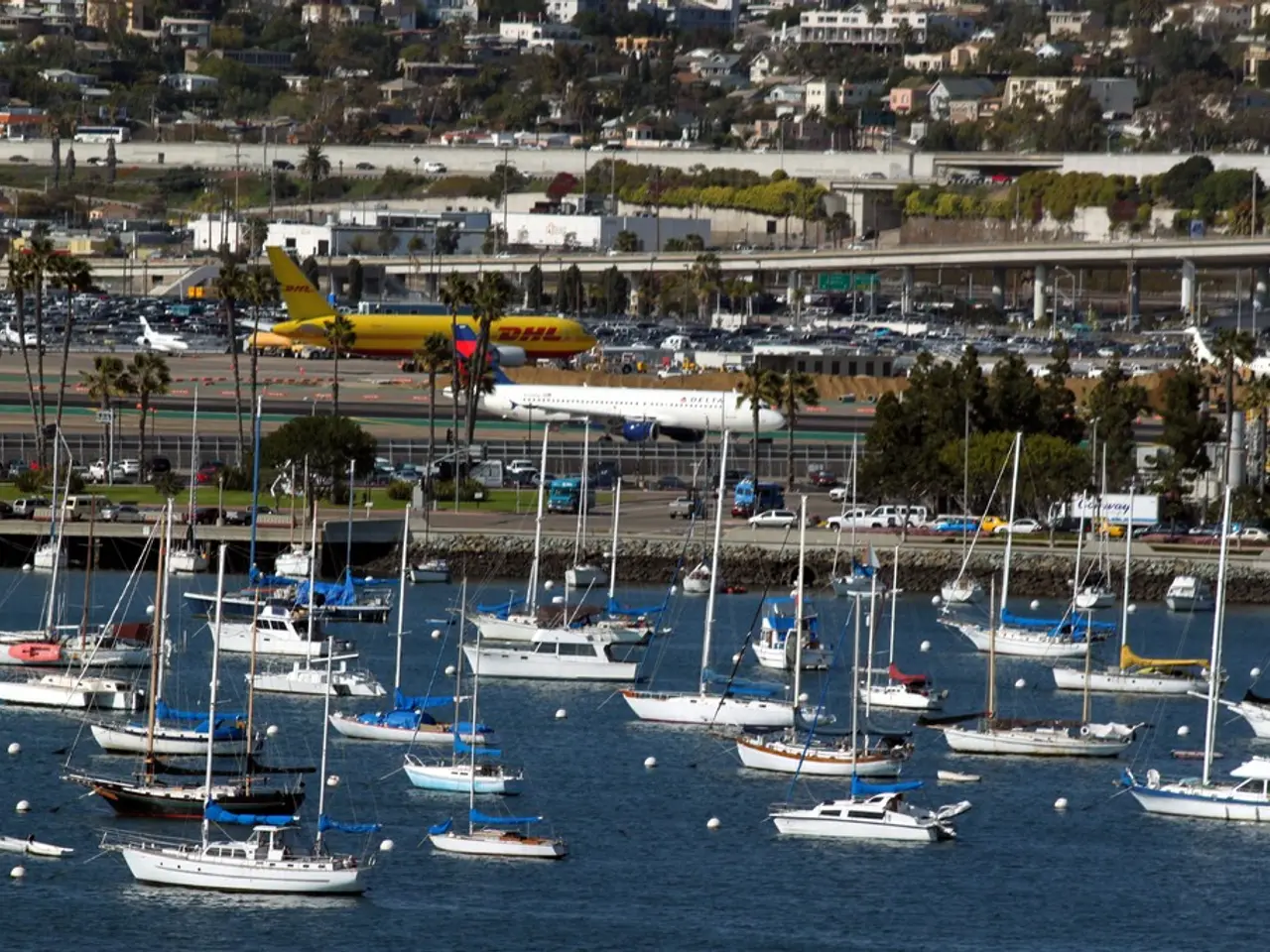Financial Commitment to Britain's Naval Sector
The maritime industry is at a pivotal juncture, facing significant challenges as countries like the UK strive to decarbonize by 2050 and adapt to new technologies such as artificial intelligence and autonomous shipping. To address these challenges and explore opportunities, a seminar is being held to discuss the UK's approach to maritime decarbonization.
Challenges in Decarbonization
The maritime sector faces several challenges in adopting new technologies and decarbonizing. Technological and infrastructure barriers, cost and efficiency concerns, and the need for harmonized global regulations pose significant challenges. The industry requires substantial investment in infrastructure and training for seafarers to adopt new fuels such as ammonia, hydrogen, and methanol. Decarbonization efforts often lead to increased costs and decreased cost efficiency, as seen in the UK's maritime sector from 2021 to 2024. Additionally, the need for harmonized global regulations presents a challenge, as different regions have varying standards and timelines for implementation.
Opportunities in Decarbonization
Despite the challenges, there are numerous opportunities for the maritime industry to innovate and grow while decarbonizing. The UK's initiatives, such as the Clean Maritime Demonstration Competition, provide substantial funding for innovation and the development of green technologies, including £30 million for decarbonizing shipping. Decarbonization can lead to economic benefits, especially for coastal communities, by creating jobs and stimulating local economies. Collaborative efforts and initiatives like the Decarb Hub and the Port Decarbonisation Blended Finance Facility aim to mobilize finance and reduce investment risks, enabling scalable decarbonization pathways.
UK's Approach to Innovation and Sustainability
The UK's approach to maritime decarbonization combines government support, innovation, and collaborative financing models. The Clean Maritime Demonstration Competition supports the development of clean maritime fuels and technologies, such as carbon capture and hydrogen. The UK is investing in research hubs and facilities, like the Clean Maritime Research Hub, to advance understanding and application of clean technologies. Projects like the development of a Scottish-built high-tech wing sail demonstrate how innovation can revitalize shipbuilding heritage while reducing emissions.
Alternative Financing Sources
Traditional financing sources may not be sufficient to cover the huge investment needed for decarbonisation, necessitating the consideration of alternative sources of finance. The UK participates in blended finance facilities that combine public and private funding to support decarbonization projects, reducing investment risks and increasing scalability. Funding competitions like the CMDC provide grants for innovative projects, ensuring that companies can develop and deploy new technologies without significant upfront costs.
Event Details
The seminar invites participants to join keynote speeches and panel discussions about the UK's approach to addressing maritime industry challenges and supporting its future. The event will feature leading figures within the maritime community discussing the UK's positioning and strategies, including through its financial and professional business services industries and UK Government support. The event commences at 16:00, with registration beginning at 15:30, and concludes at 18:20. After the seminar, a networking reception follows. Spaces for the event are limited, so early registration is recommended to avoid disappointment. For any questions, contact Erika Gardiner. The full agenda can be viewed on a specific website.
The estimated cost of decarbonising the maritime industry ranges between $1.5 and $1.9 trillion, making it a significant undertaking for the industry. The UK's innovative approach to maritime decarbonization, combining government support, research, and funding, presents a promising path forward for the industry.
Read also:
- Ford Discontinues Popular Top-Seller in Staggering Shift, Labeled as a "Model T Event"
- Dubai-bound: Omega Seiki Mobility, an electric vehicle company from India, prepares for assembly establishment
- Best Strategies for Software Updates in SCCM and WSUS
- UNEX EV, U Power's collaborator, inks LOI with Didi Mobility for the implementation of UOTTA battery-swapping vehicles in Mexico.







